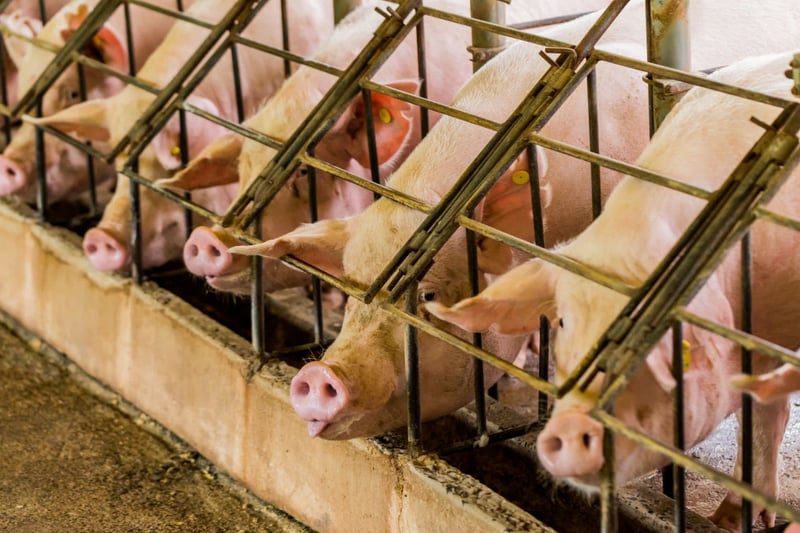
Factory farming is a super threat to our health
News
Treating animals cruelly and keeping them in poor conditions can lead to viruses that impact humans like COVID-19. It’s hard to imagine any bigger challenge for our health systems. But there’s a ticking timebomb in factory farming that could make the public health crisis even worse: superbugs .
By Jacqui Mills, Head of Pigs Campaign, World Animal Protection
Factory farming and pandemic risk
COVID-19 is believed to have originated at horrific wildlife and live animal markets, and has gone on to devastate lives, economies and health systems around the world.
It’s not the first virus capable of causing a pandemic and it won’t be the last. Prior to COVID-19, there was swine flu, bird flu, Nipah virus, amongst others coming from farm animals. Squashing together large numbers of stressed animals in dismal conditions on factory farms is a proven recipe for new viruses to emerge, jump to humans and spread.
Let’s force open the doors of the factory farm for a moment. What do you see?
Row upon row of chronically hungry mother pigs staring out from behind the bars of individual cages, shoulders with sores from rubbing against hard floors.
Or in a chicken farm, you smell the ammonia from thousands of genetically uniform birds crammed against one another sitting on their own waste; in harsh, artificial light, lame, and unable to move around without collapsing in pain.
If disease was to take hold, it could make all the animals sick and the whole group could die.
Antibiotic dependence props up cruel factory farming
Factory farming can’t afford the financial risk so every year it bets on 131,000 tonnes of antibiotics dispensed to stressed animals as a band aid to stop them getting sick, rather than fixing the issues that predispose animals to illness in the first place.
Excessive use of antibiotics causes superbugs to emerge and transfer to humans, making antibiotics less effective to treat humans and risking our health.
This, right at the time the pandemic, puts health systems under extreme pressure. If the pandemic is the flash flood that has taken us by surprise, the superbug crisis is the only-too-predictable slow rising tide.
700,000 people die from superbugs each year, already. Approximately 10 million deaths are expected annually by 2050.
The World Health Organisation (WHO) warns we could reach a stage where we are resistant to all antibiotics because of the superbug crisis – a post-antibiotic era.
This means commonplace operations like caesarean sections or cancer treatment suddenly become dangerous – perhaps impossible – because antibiotics will not protect against infection.
Superbugs are the super threat to our health
COVID-19 may be a virus which does not respond to antibiotics, but antibiotics are used to treat the secondary infections – such as bacterial infections of the lungs and blood – that it can cause.
We know that up to 50% of COVID-19 deaths in one study from Wuhan, China involved secondary infections. In this study, up to 95% of serious cases or hospital admissions were given antibiotics, and in other studies up to 90%.
But how is antibiotic effectiveness compromised by superbugs? There could be a significant additional toll from superbugs during the pandemic and into the future.
End factory farming. End the super threat to public health
Animal suffering is at the heart of the factory farming system that spawns the biggest public health dilemmas of the twenty-first century.
Yet, another future is possible.
Raising and consuming fewer animals. Giving farm animals room to move and treating them humanely means antibiotics can be minimised, safeguarding public health.
Our future depends on us rethinking how we treat all animals.
This is not the first time we’ve seen a global pandemic, but together we could make this the last.
Excessive use of antibiotics causes superbugs to emerge and transfer to humans, making antibiotics less effective to treat humans and risking our health.